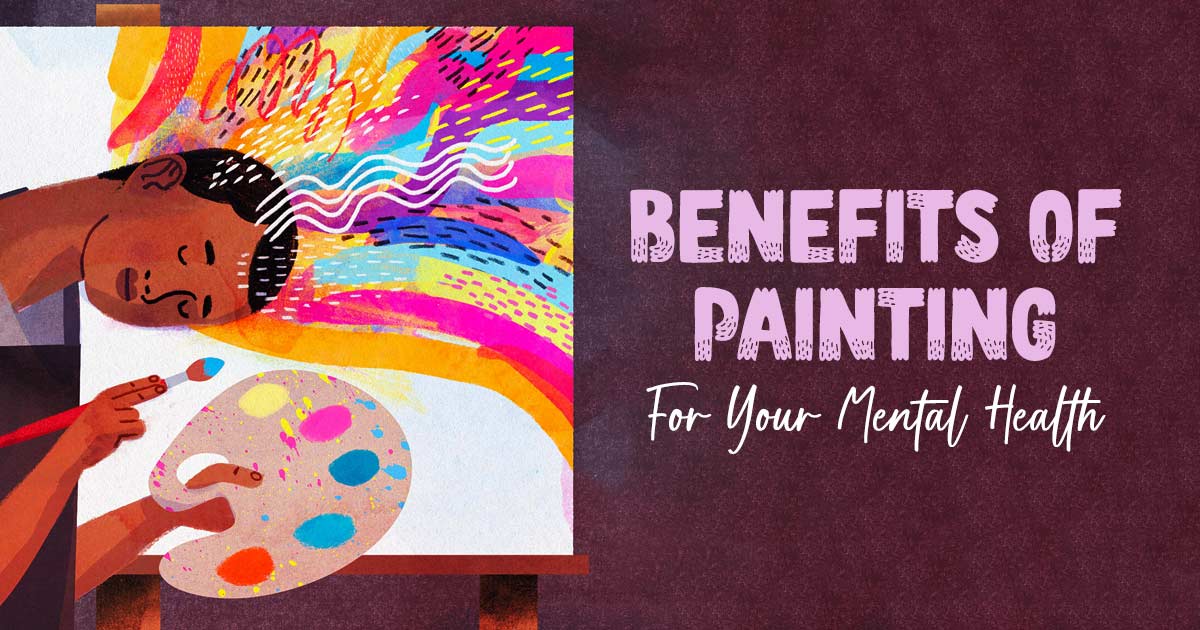In a world that often feels fast-paced and overwhelming, seeking solace in creative outlets has become more essential than ever. One such medium that has captured the hearts and minds of individuals seeking respite from the daily grind is painting.
Beyond being a form of artistic expression, how painting benefits mental health has been remarkably recognized. From reducing stress and anxiety to fostering self-discovery, the act of putting a brush to canvas holds a powerful transformative potential.
1. Stress Relief And Relaxation
The act of painting is a therapeutic journey that transports individuals into a state of focus and concentration. The intricate movements of the brush, the interplay of colors, and the rhythmic strokes across the canvas create a mindful experience that helps reduce stress and anxiety. Engaging in painting allows the mind to temporarily detach from worries, offering a much-needed mental respite.
2. Emotional Expression And Processing
Art has the remarkable ability to communicate emotions that words may struggle to convey. Painting provides a visual language through which individuals can express complex feelings, whether joy, sorrow, anger, or confusion. The process of selecting colors, shapes, and textures enables artists to externalize their internal struggles, aiding in emotional processing and catharsis.
3. Mindfulness And Presence
The meditative nature of painting encourages a state of mindfulness and presence. As artists focus on the brush strokes, blending colors, and shaping the composition, they enter a flow state—a state of complete absorption in the present moment. This mindfulness practice not only cultivates a sense of tranquility but also enhances overall well-being.
4. Boosting Self-esteem And Confidence
Creating a piece of art, whether a simple sketch or a complex painting, instills a sense of accomplishment and pride. As individuals witness their ideas taking shape on the canvas, their self-esteem and confidence receive a significant boost. With each stroke of the brush, they prove to themselves that they are capable of creating something unique and meaningful.
5. Encouraging Self-Exploration
Painting can serve as a mirror that reflects an individual’s inner thoughts, desires, and struggles. Exploring different techniques and styles allows artists to delve into uncharted territories of their own minds.
This process of self-exploration can lead to heightened self-awareness, helping individuals better understand their emotions and motivations.
6. Cultivating Patience and Resilience
Creating a work of art requires patience, as layer upon layer is built to create the final image. The journey from a blank canvas to a finished masterpiece teaches individuals the value of perseverance and resilience.
Coping with mistakes, adjusting techniques, and enduring through challenges in painting can translate to improved coping mechanisms in daily life.
7. Social Connection and Community
In order to understand how painting benefits mental health, it is important to acknowledge that engaging in painting doesn’t have to be a solitary endeavor. Joining art classes or workshops provides opportunities for social interaction and connection with like-minded individuals.
Sharing experiences, receiving feedback, and collaborating on creative projects foster a sense of belonging and camaraderie.
8. Cognitive Enhancement
Painting stimulates the brain by requiring the integration of various cognitive skills. From spatial awareness to color theory, artists engage in complex problem-solving while creating their masterpieces. This cognitive engagement can help sharpen mental acuity and cognitive flexibility.
In a world inundated with screens and digital distractions, the analog and tactile nature of painting offers a much-needed reprieve. It invites us to slow down, reconnect with ourselves, and embrace the therapeutic benefits of creative expression.
Whether you’re a professional artist or a novice with a curious spirit, the act of painting holds the potential to nourish your mental well-being in profound ways. So, the next time you pick up a brush and dip it into a palette of colors, remember how painting helps mental health and how you’re also nurturing your mind and soul.




























